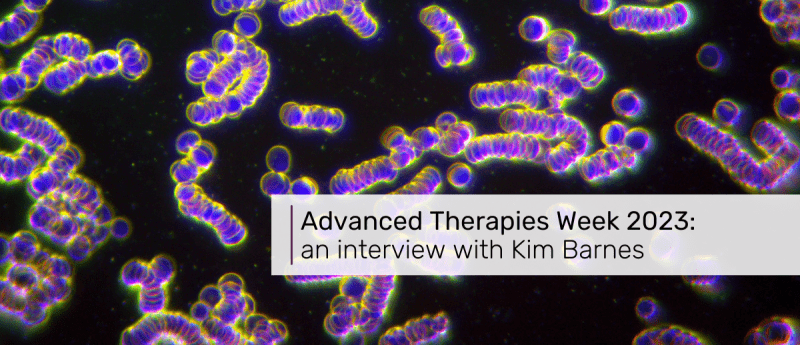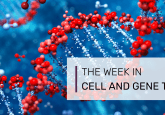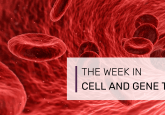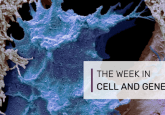Fostering connections in cell and gene therapy: an interview with Kim Barnes

 Kim Barnes is Executive Vice President of Phacilitate (London, UK). She oversees the strategic direction of Phacilitate and has a passion for connecting the cell and gene therapy field.
Kim Barnes is Executive Vice President of Phacilitate (London, UK). She oversees the strategic direction of Phacilitate and has a passion for connecting the cell and gene therapy field.
At Phacilitate’s Advanced Therapies Week 2023 (17–20 January 2023; Miami, FL, USA) we caught up with Kim about her highlights from the week, the inaugural Advanced Therapies Awards and what we can expect from this year’s Advanced Therapies Europe (6-7 September 2023; Lisbon, Portugal).
This year at Advanced Therapies Week we’ve seen more emphasis placed on patient advocacy, with many talks dedicated to this topic. What was the driving force behind this decision?
We do around six months of research for Advanced Therapies Week and something that kept coming up was the need to have patient-centric development across both clinical and manufacturing. We have a role to play in making sure we are leading the way in terms of how the field wants to move forward and we’re listening to our attendees and members. That’s why we put it into the agenda because they’ve told us that’s what they need. The patient should be at the heart of what we do. They shouldn’t just be the end result. When you’re thinking about your commercialization journey or your clinical journey, getting the service to patients is the end goal for this industry. You need to put them at the heart of that development to make sure you’re listening to their feedback along the way as well as making sure that when you get to the later clinical or commercial stages you’ve really thought about that journey for the patient as well. That’s why I think we have a role to play in making sure that is communicated to the field.
Looking ahead to the future, how do you see Phacilitate working to change the cell and gene therapy landscape?
I think where Phacilitate can make a change in the industry is through the connections we foster through our digital platform and our network. This industry needs partnerships and connections. We are at a nascent stage in this industry, so without those partnerships, it’s harder to get these treatments to patients. Partnerships are the way forward. Phacilitate’s role in these events is to foster connections and I think that makes a huge difference in the field. The meetings that have happened in Miami and the partnerships that have been made will help to shape the future of the industry.
What can we expect from Advanced Therapies Europe this year?
Advanced Therapies Europe is going to be in Lisbon. We are moving it out of London so we can put the show in mainland Europe. We still expect a large UK audience due to the size of the cell and gene therapy market here, however as this is a European show we need to ensure this isn’t a UK-centric event. I think Europe is a really interesting and challenging market. It’s really fragmented from a regulatory and reimbursement perspective and it’s typically harder to get therapies approved there. It’s also more difficult getting therapies into larger patient populations around Europe because obviously, each country has its own set of rules. So, I think Europe is going to be very focused on pricing, reimbursement and regulation. It will focus on promoting success in Europe and putting that continent on the map for cell and gene therapy. We have a role to play there in promoting Europe as a place to bring your therapies and do business and hopefully get approvals for the future. We live in Europe, so of course, it means a lot to us to have that show and promote this market for future cell and gene therapy approvals.
It’s another destination event and that’s what the Phacilitate brand is. We do things in destinations because everyone just wants to have fun and enjoy it and I think the best connections are created in a relaxed setting.
Lastly, what has been your highlight from Advanced Therapies Week 2023?
I’ve got three. The first one is when I saw the build finalized. I walked into the exhibition and had to take a moment because the growth of this exhibition is due to the growth of the industry. I’ve worked at Phacilitate for nine years and nine years ago we had this show in the basement of a hotel in DC. It was very small. This year I walked in and thought, wow, this is where the industry has moved. The industry is maturing and you can see this from the size of the exhibition, I think that was one of my top moments.
The second one is the yacht party. Taking 400 attendees out on a yacht in the middle of the ocean, they get a chance to let loose and make the best connections. I think they really appreciated that and it was really fun. People say that scientists can’t party but that’s not true. When you put them on a yacht in Miami, they definitely do. I really enjoyed seeing everyone have fun in a relaxed setting and that’s what I wanted on that yacht.
Of course the third is the awards last night. The awards were emotional, I think for a couple of reasons. We deserve to celebrate each other and our successes as an industry. Also, it was really emotional because we had Carl June up there and I think that touched a few heartstrings as well. We got a video of ten patients saying thank you to him and that meant a lot to Carl as well. We also did a dedication to Simon Ellison, who passed away a couple of years ago, and we announced a new award for 2024, the Simon Ellison Supply Chain Innovation Award, in his memory. I think the awards, in itself, was a celebration of progress, but it was also emotional. And I think that’s what our industry is. We are saving lives and that’s important to recognize.
Disclaimer
The opinions expressed in this interview are those of the interviewee and do not necessarily reflect the views of RegMedNet or Future Science Group.





